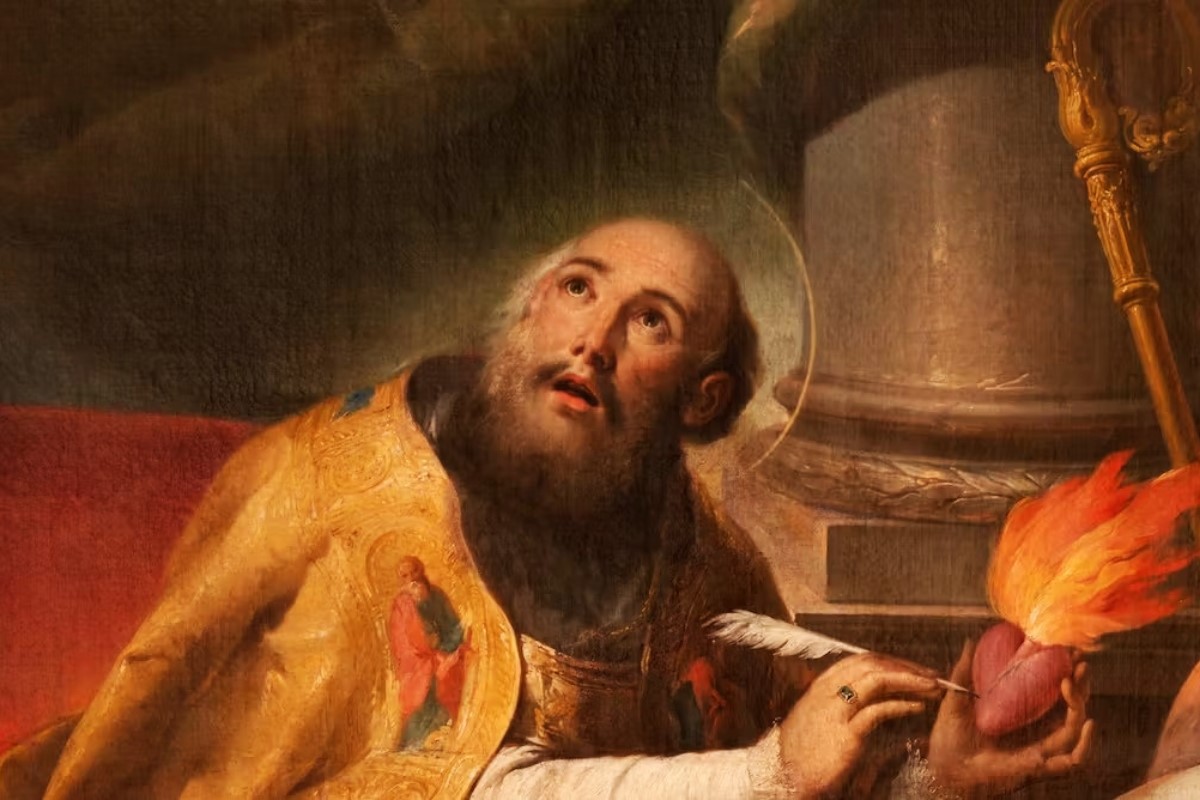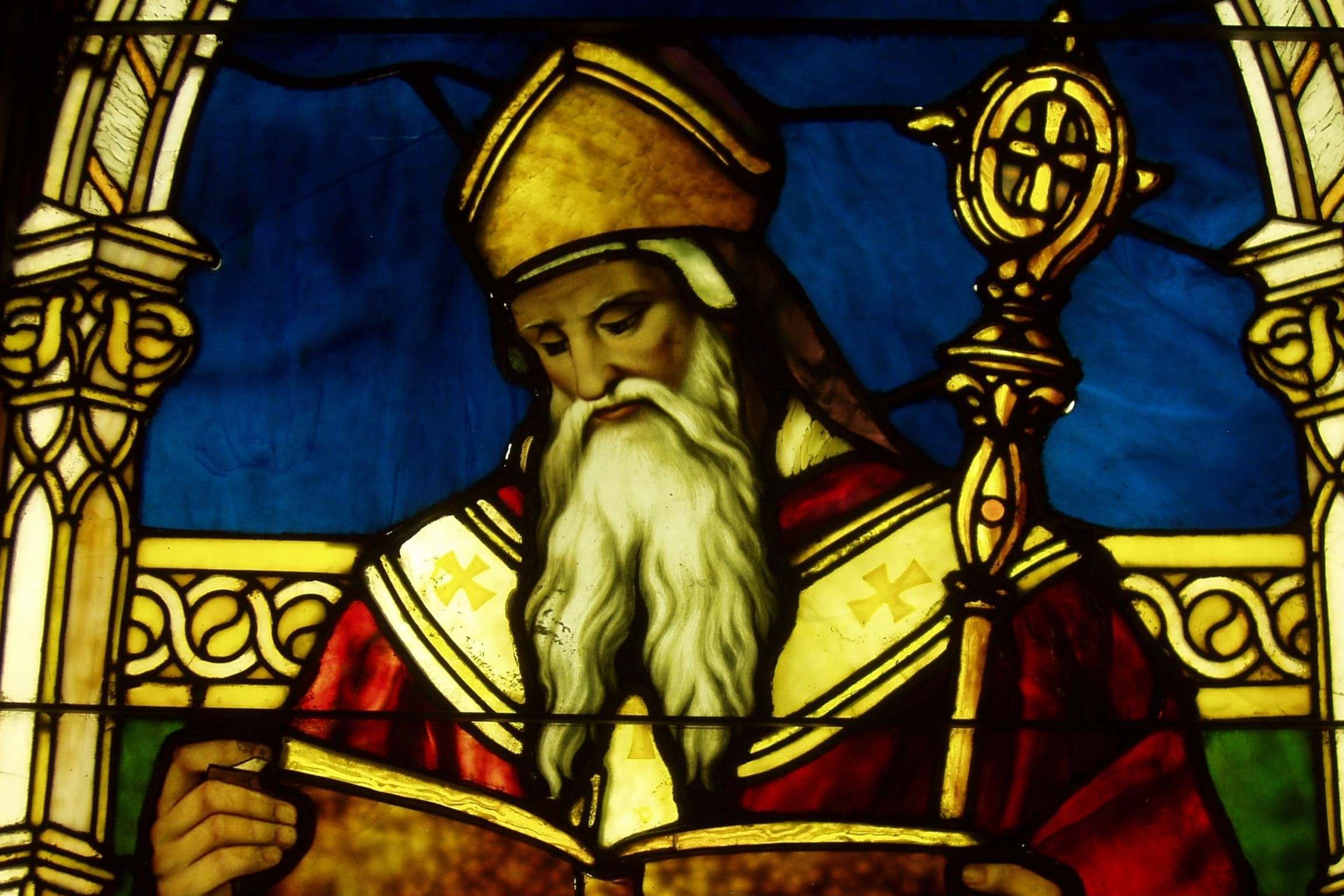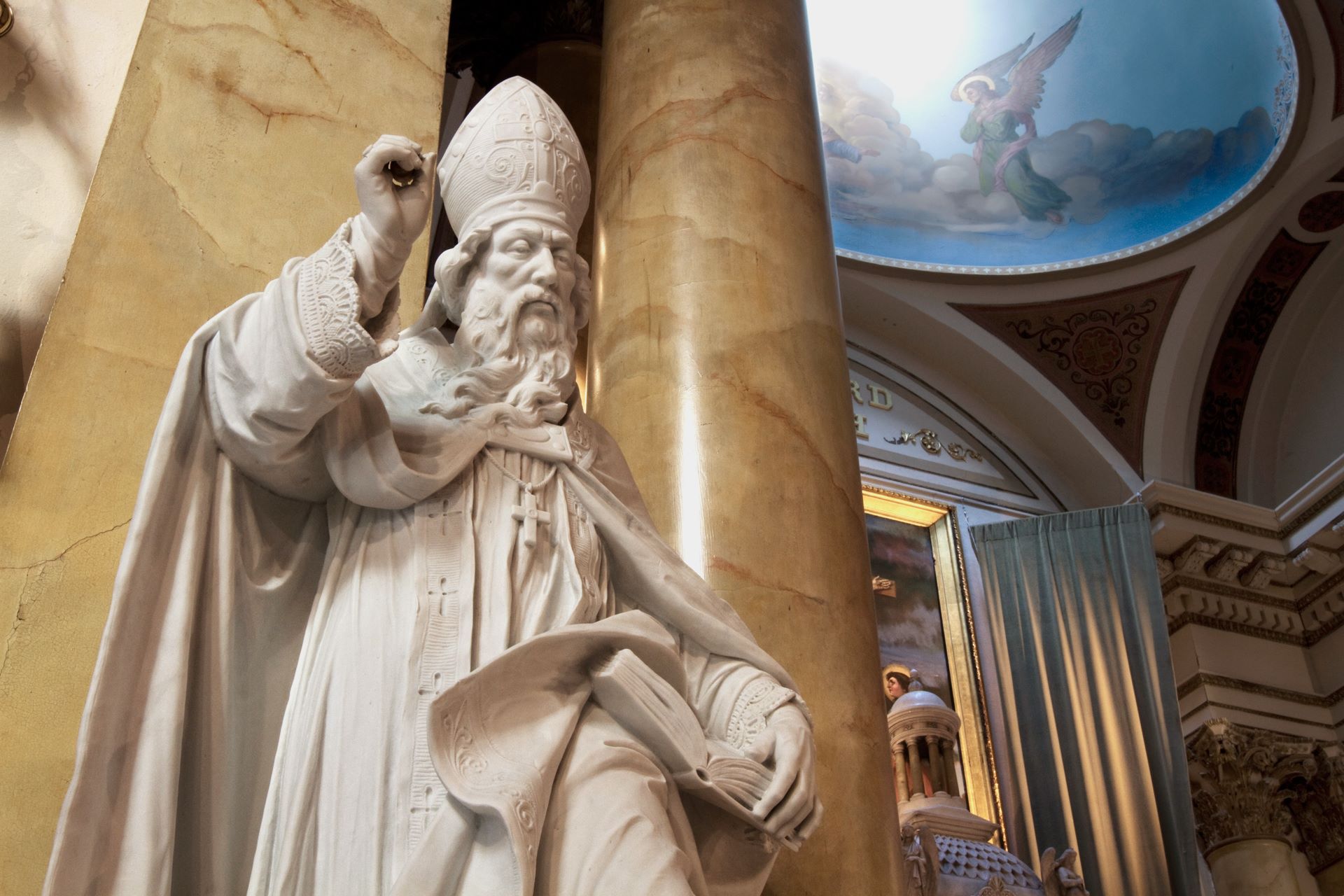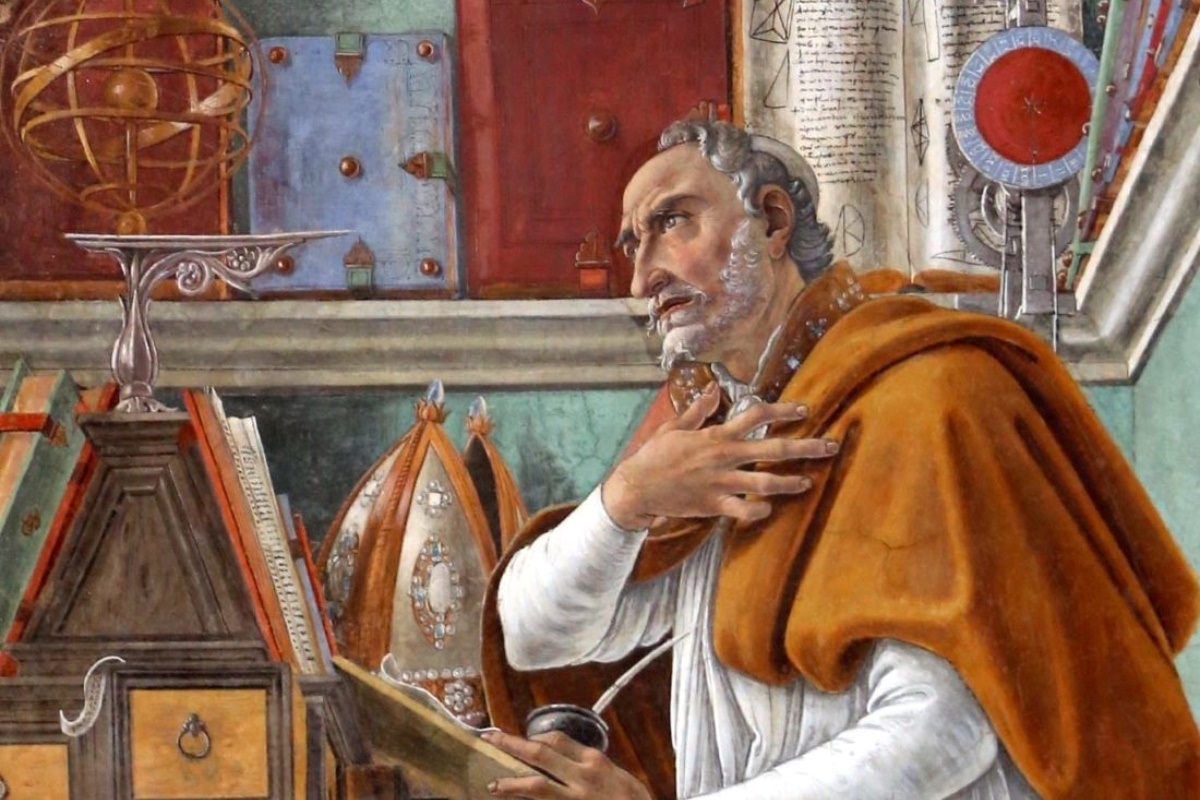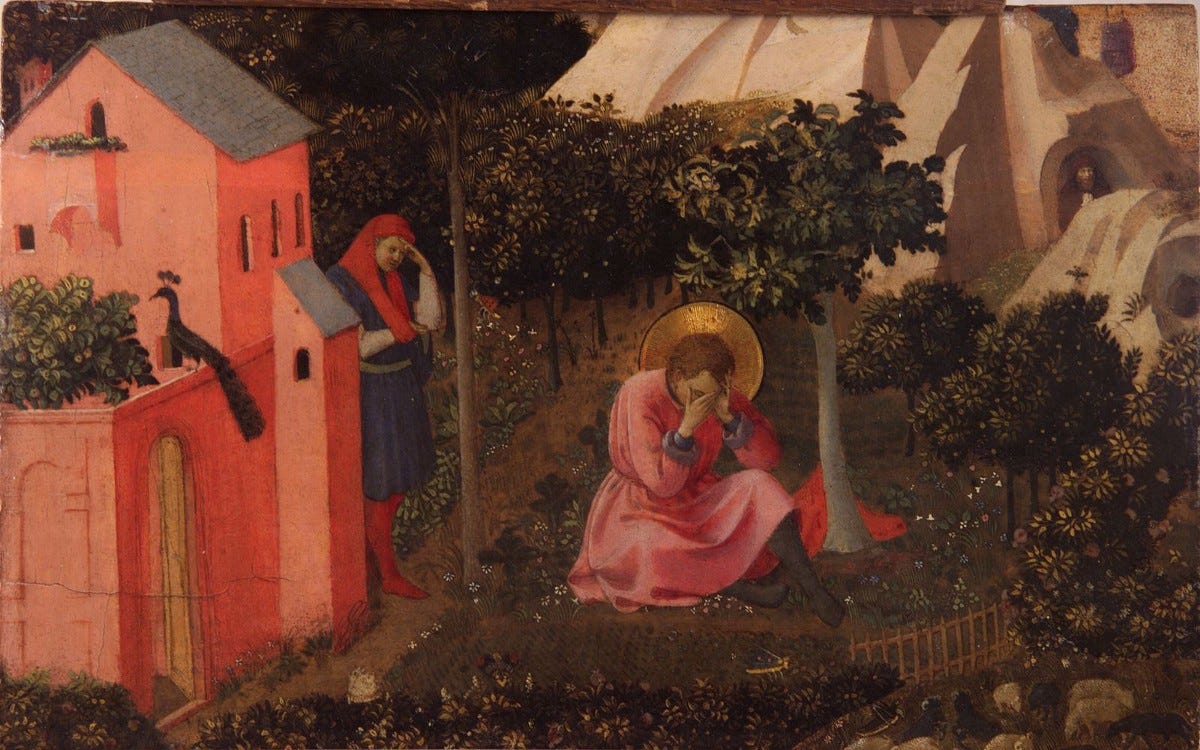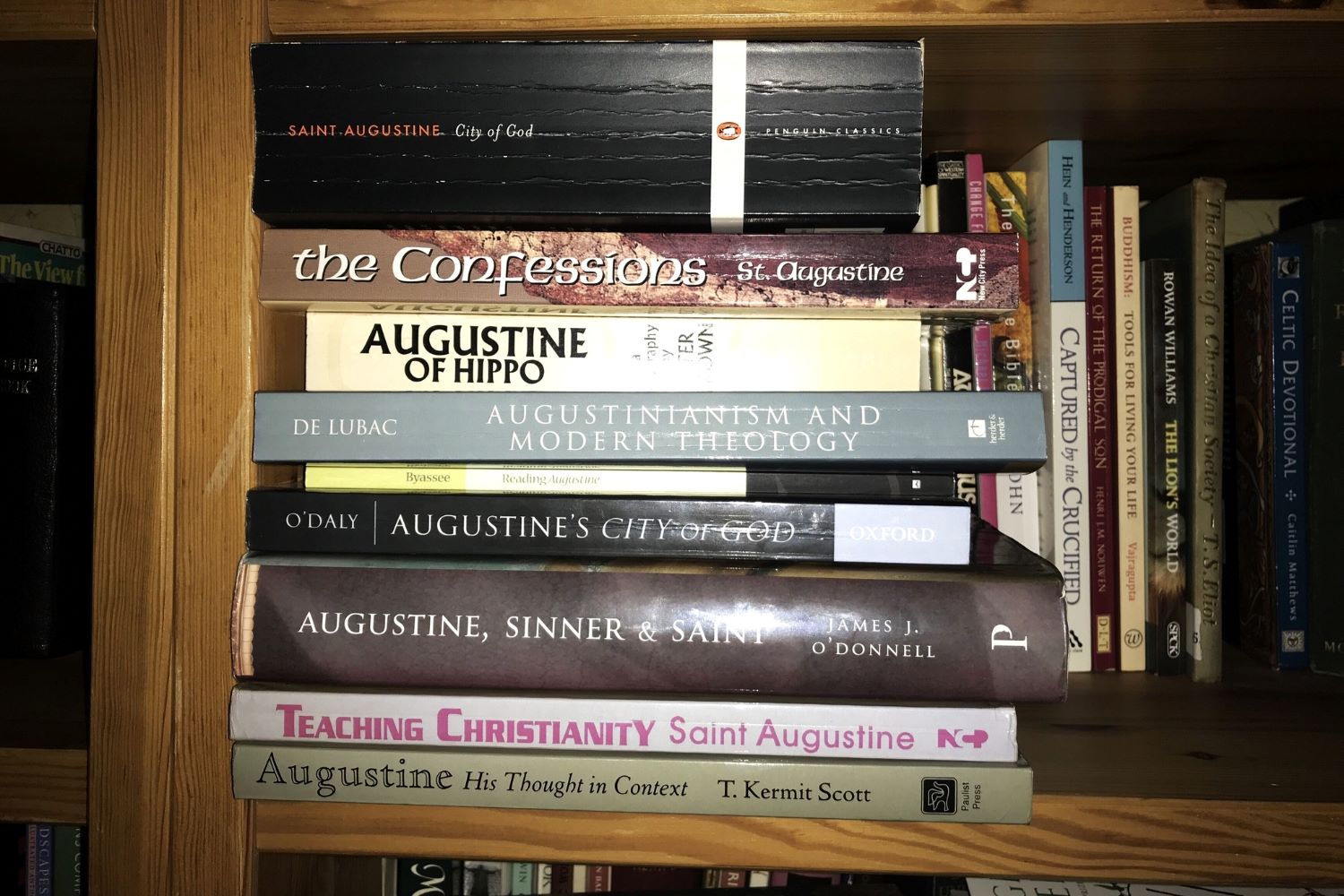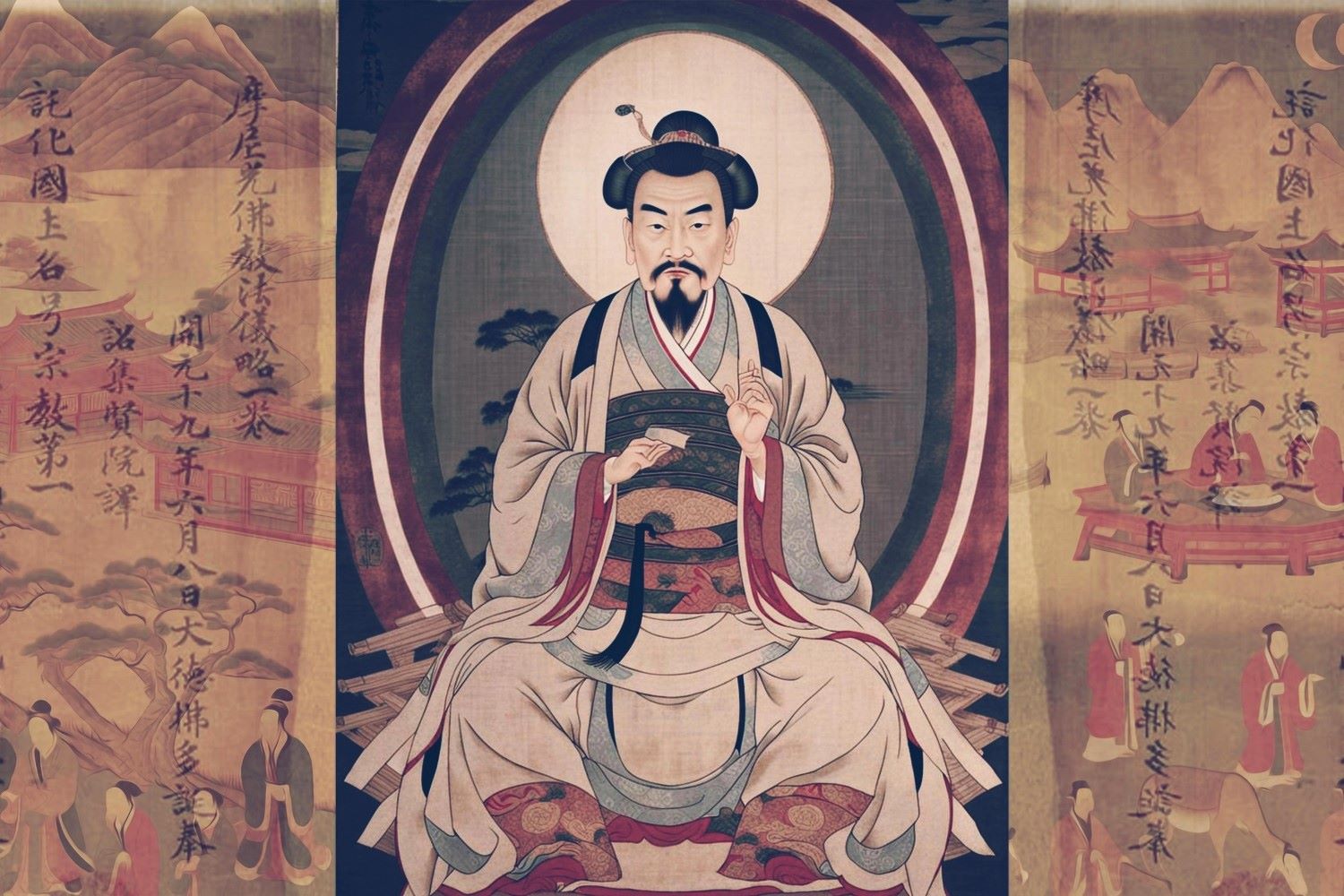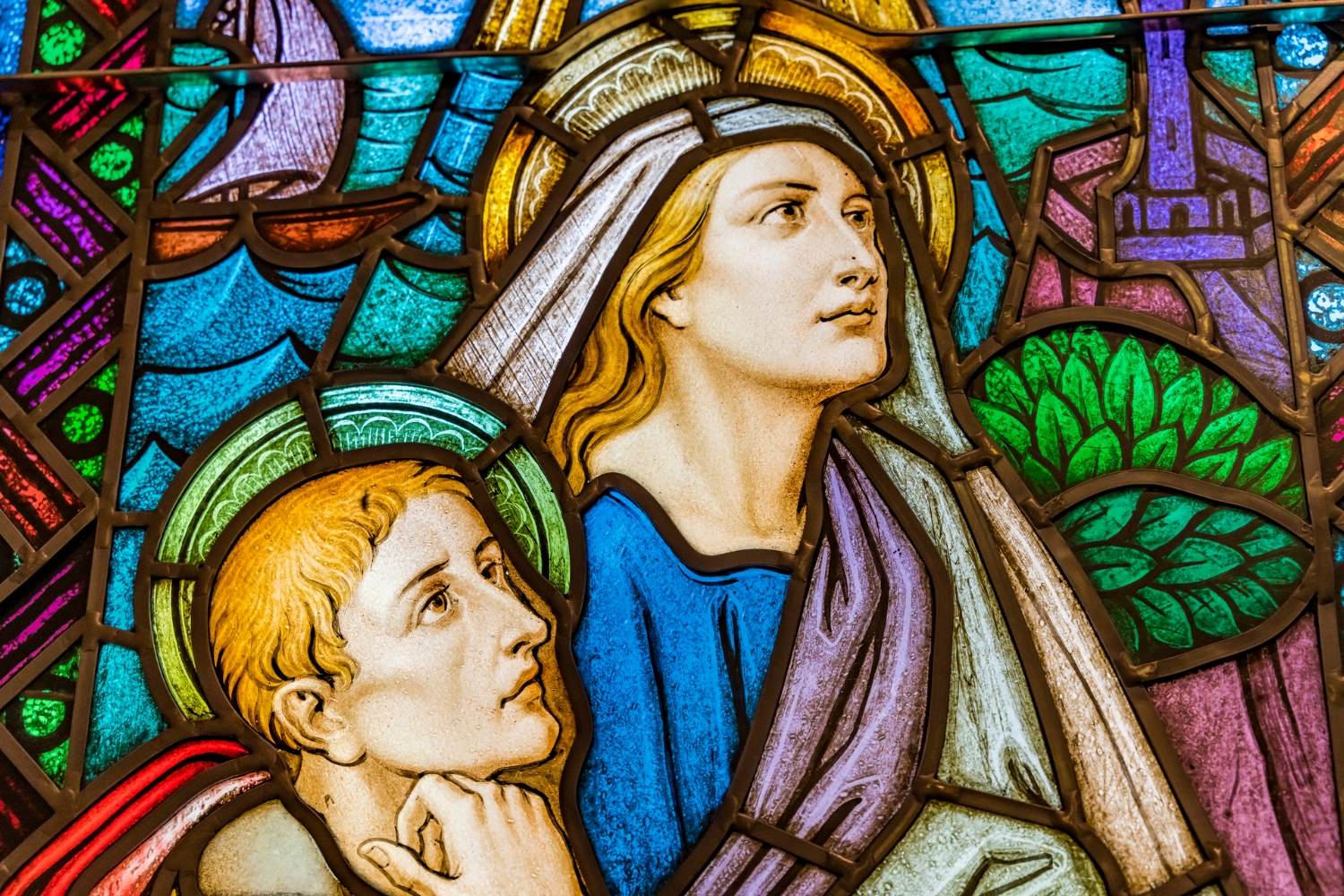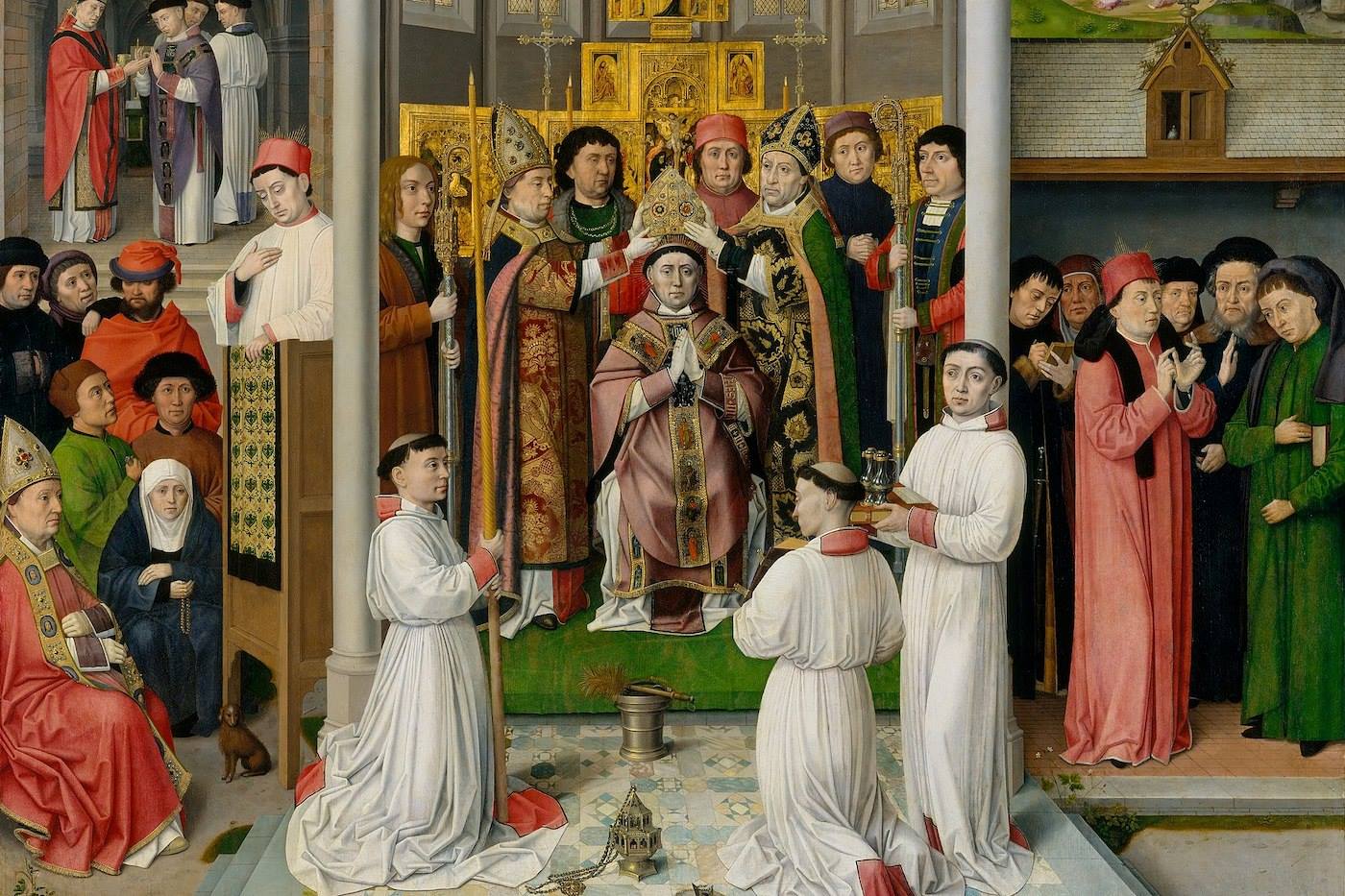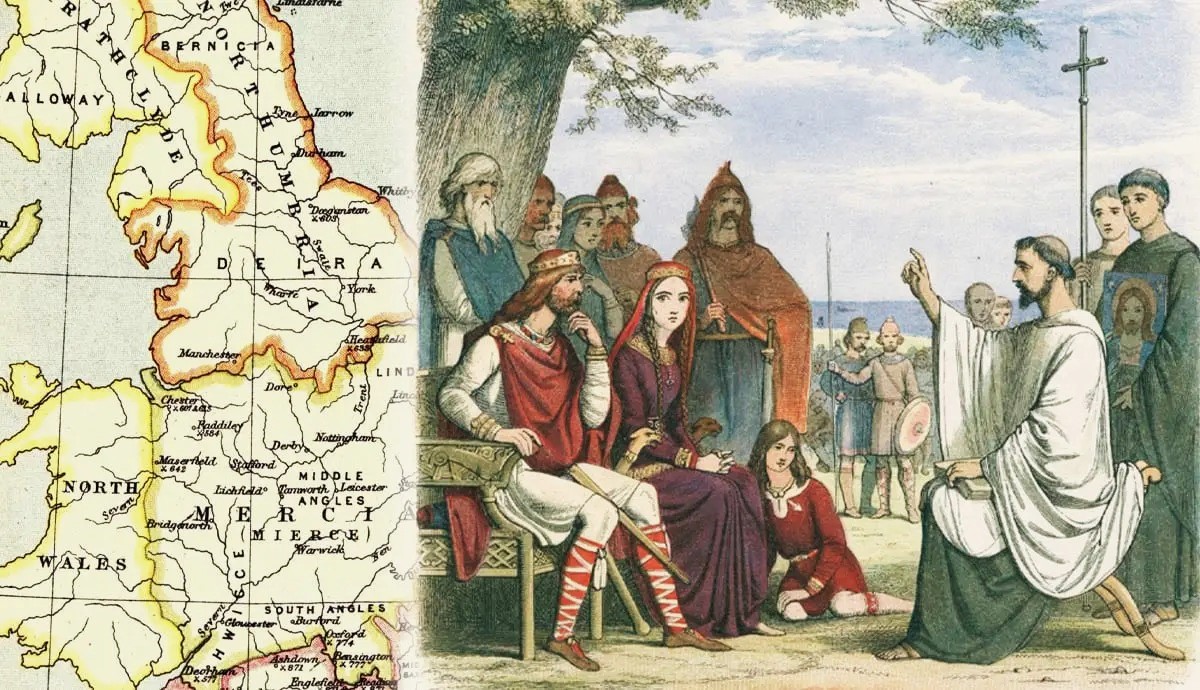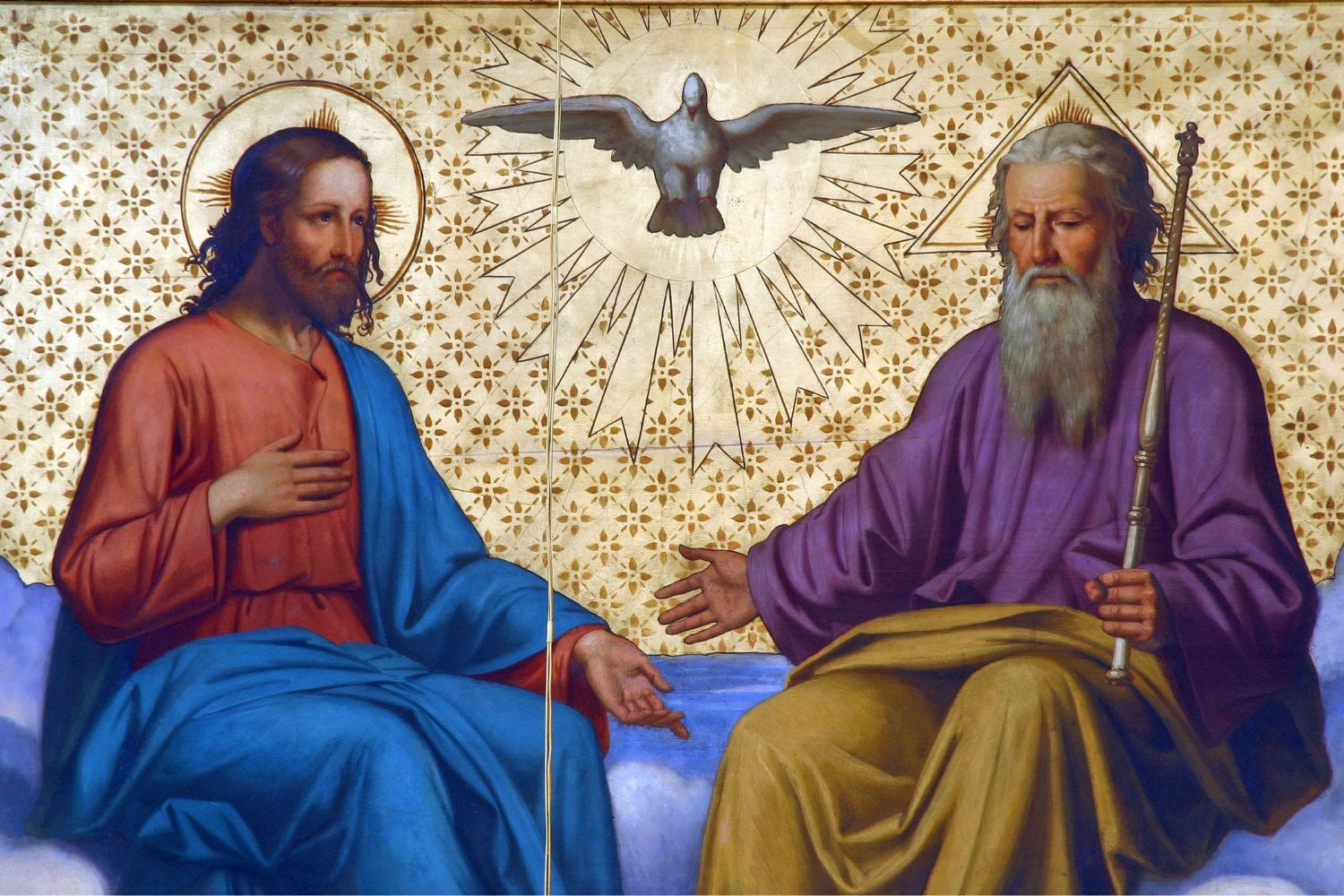Home>Theology and Spirituality>How Did Augustine Use Plato’s Ideas
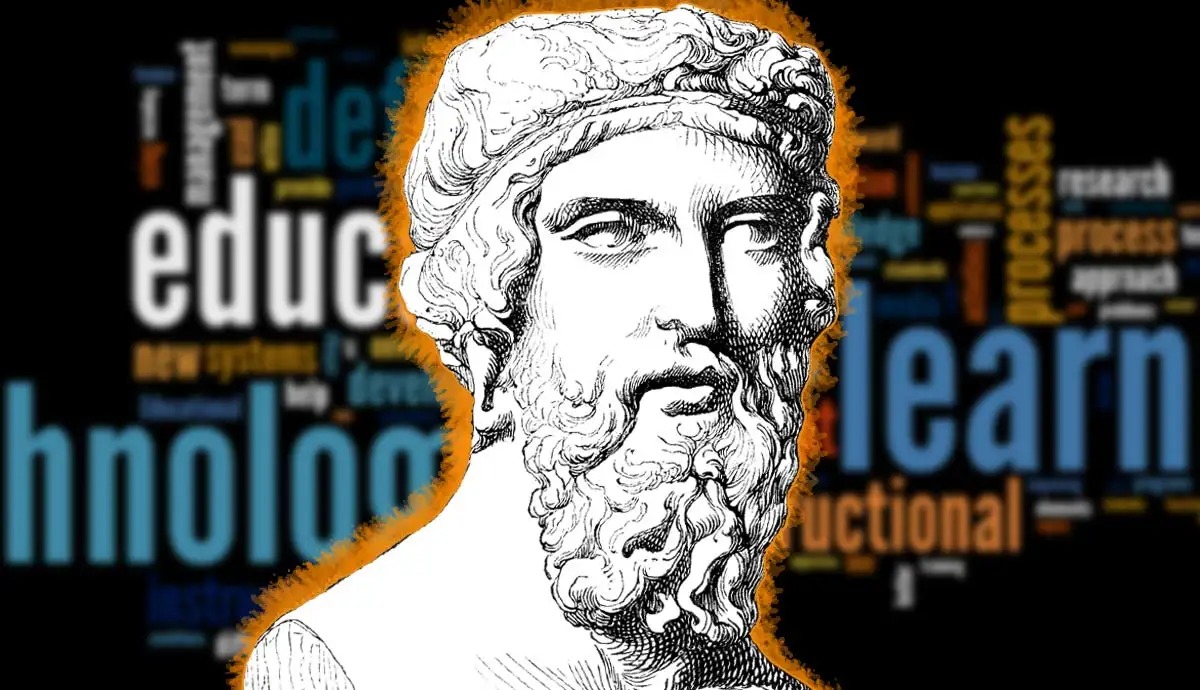

Theology and Spirituality
How Did Augustine Use Plato’s Ideas
Published: February 10, 2024
Jason DeRose, Managing Editor at Christian.net, uses his expertise in religion and journalism to deepen understanding of faith's societal impacts. His editorial leadership, coupled with a strong academic background, enriches the platform’s diverse content, earning him recognition in both journalism and religious circles.
Discover how Augustine incorporated Plato's ideas into his theology and spirituality, and the impact it had on his influential work. Explore the connection between these two influential figures.
(Many of the links in this article redirect to a specific reviewed product. Your purchase of these products through affiliate links helps to generate commission for Christian.net, at no extra cost. Learn more)
Table of Contents
Introduction
Augustine of Hippo, a towering figure in the history of Christian theology, was deeply influenced by the philosophical ideas of Plato, the renowned ancient Greek philosopher. Augustine's theological framework and philosophical outlook were profoundly shaped by his engagement with the works of Plato. This influence is evident in Augustine's views on the nature of reality, the human soul, and the concept of the divine. By exploring the ways in which Augustine incorporated Plato's ideas into his theological and philosophical writings, we can gain a deeper understanding of the intellectual currents that shaped the development of Christian thought in the early centuries of the Church.
Augustine's engagement with Plato's philosophy was not merely a passive acceptance of ideas, but a dynamic process of critical engagement and appropriation. Through this interaction, Augustine sought to reconcile the wisdom of classical philosophy with the tenets of Christian faith, thereby enriching the theological discourse of his time. By delving into the nuances of Augustine's appropriation of Plato's ideas, we can discern the intricate interplay between classical philosophy and Christian theology, shedding light on the intellectual and spiritual landscape of the early Church.
In this exploration, we will delve into Augustine's early influences, examining the intellectual milieu in which he encountered the works of Plato. We will then proceed to analyze the specific ways in which Plato's ideas permeated Augustine's theological and philosophical framework, illuminating the profound impact of classical philosophy on the development of Christian doctrine. By tracing the contours of this intellectual journey, we can appreciate the enduring legacy of Augustine's synthesis of Platonic thought and Christian theology, which continues to resonate in theological discourse to this day.
Augustine's Early Influences
Augustine of Hippo was born in the North African town of Thagaste in 354 AD. His formative years were marked by a rich tapestry of influences that would profoundly shape his intellectual and spiritual development. One of the most significant early influences on Augustine was his exposure to the classical liberal arts education, which introduced him to the works of ancient philosophers, including Plato. This educational environment provided Augustine with a robust foundation in rhetoric, logic, and the study of classical literature, fostering a deep appreciation for the intellectual heritage of ancient Greece.
Furthermore, Augustine's immersion in the Manichaean religion during his youth exerted a profound influence on his early theological outlook. The Manichaeans espoused a dualistic cosmology, positing a stark contrast between the realms of light and darkness, good and evil. This dualistic framework left an indelible imprint on Augustine's thought, as he grappled with profound questions concerning the nature of evil, the human condition, and the ultimate purpose of existence.
In addition to these formative influences, Augustine's encounter with the works of the Neoplatonist philosophers, particularly Plotinus, proved to be a pivotal catalyst in shaping his philosophical orientation. Neoplatonism, with its emphasis on the transcendent realm of the One, the emanation of the divine intellect, and the ascent of the soul towards union with the divine, resonated deeply with Augustine's intellectual sensibilities. The Neoplatonic framework provided Augustine with a philosophical language to articulate his evolving understanding of the human soul, the nature of reality, and the yearning for ultimate truth and fulfillment.
Amidst these diverse influences, Augustine's intellectual journey culminated in his conversion to Christianity, a momentous event that would profoundly reorient his philosophical and theological trajectory. The interplay of these early influences, encompassing classical education, Manichaean dualism, and Neoplatonic philosophy, laid the groundwork for Augustine's engagement with the ideas of Plato, setting the stage for the synthesis of classical wisdom and Christian doctrine that would characterize his later theological endeavors.
In the crucible of these formative influences, Augustine's encounter with the philosophical legacy of Plato took root, germinating into a profound dialogue between the classical philosophical tradition and the Christian faith. This fertile soil of intellectual and spiritual exploration would yield a rich harvest of theological insights, as Augustine embarked on a transformative journey of critical engagement with Plato's ideas, ultimately shaping the contours of Christian theology for centuries to come.
Plato's Influence on Augustine's Philosophy
The profound influence of Plato's philosophy on Augustine's intellectual and theological framework is unmistakably evident in the intricate tapestry of his writings. Central to Plato's philosophical corpus is the concept of the Forms, or Ideas, which represent the transcendent, immutable archetypes of reality. These Forms, according to Plato, constitute the ultimate reality, serving as the eternal prototypes of the material world. Augustine's engagement with this Platonic concept of transcendent Forms profoundly shaped his understanding of the nature of reality and the divine.
Moreover, Plato's allegory of the cave, found in his seminal work "The Republic," resonated deeply with Augustine's contemplation of the human condition and the quest for ultimate truth. The allegory depicts humanity as akin to prisoners in a cave, perceiving mere shadows of reality, unaware of the transcendent realm of Forms. This allegory provided Augustine with a powerful metaphor for the human predicament, encapsulating the yearning for enlightenment and the ascent towards the divine.
Furthermore, Plato's emphasis on the immortality of the soul and its participation in the realm of the Forms profoundly influenced Augustine's articulation of the nature of the human soul and its longing for union with the divine. The Neoplatonic concept of the soul's journey towards the One, as expounded by Plotinus, resonated with Augustine's evolving theological vision, providing a philosophical framework for his exploration of the human soul's innate yearning for God.
Additionally, Plato's dialogues, particularly the "Phaedrus" and the "Symposium," delved into the nature of love and the ascent towards the contemplation of the divine. Augustine's reflections on the nature of love, encapsulated in his seminal work "The Confessions," bear the indelible imprint of Plato's insights on the transformative power of love in guiding the soul towards the divine.
In essence, Plato's profound influence on Augustine's philosophy permeates the theological landscape of his writings, shaping his understanding of the nature of reality, the human soul, and the yearning for ultimate truth. This intricate interplay between Platonic ideas and Christian theology underscores the enduring legacy of Augustine's synthesis of classical wisdom and Christian doctrine, enriching the theological discourse with profound insights that continue to resonate in the contemplative exploration of faith and reason.
Augustine's Use of Plato's Ideas in his Theology
Augustine's theological framework bears the indelible imprint of Plato's ideas, as he deftly wove the rich tapestry of classical philosophy into the fabric of Christian doctrine. One of the central themes through which Augustine appropriated Plato's ideas is the concept of the transcendent Forms. For Plato, the Forms represented the immutable archetypes of reality, transcending the material world. Augustine ingeniously integrated this concept into his theological discourse, positing the divine as the ultimate Form, the source of all reality and perfection. This theological appropriation of Platonic Forms enriched Augustine's articulation of the divine transcendence and the eternal verities that undergird the created order.
Furthermore, Augustine's engagement with Plato's allegory of the cave found profound resonance in his theological reflections. The allegory, depicting humanity's journey from the shadows of ignorance towards the illumination of truth, provided Augustine with a powerful metaphor for the human quest for God. Augustine deftly employed this allegory to expound on the transformative journey of the soul, enshrining the yearning for divine illumination at the core of his theological vision.
Moreover, Augustine's appropriation of Plato's insights on the nature of love and the ascent towards the contemplation of the divine enriched his theological reflections on the primacy of love in the Christian life. Drawing inspiration from Plato's dialogues, Augustine expounded on the transformative power of love in guiding the soul towards union with the divine, thereby infusing his theological discourse with profound insights on the nature of divine love and the human longing for communion with God.
Additionally, Augustine's nuanced engagement with the Neoplatonic concept of the soul's ascent towards the One, as expounded by Plotinus, permeated his theological reflections on the human soul's yearning for union with God. This Neoplatonic framework provided Augustine with a philosophical language to articulate the soul's innate orientation towards the divine, enriching his theological anthropology with profound insights into the nature of the human longing for ultimate fulfillment in God.
In essence, Augustine's use of Plato's ideas in his theology represents a masterful synthesis of classical philosophy and Christian doctrine, enriching the theological landscape with profound insights into the nature of reality, the human soul, and the yearning for ultimate truth. This dynamic appropriation of Platonic ideas underscores the enduring legacy of Augustine's theological vision, which continues to inspire contemplative exploration and theological discourse in the Christian tradition.
Conclusion
In conclusion, the profound influence of Plato's ideas on Augustine's theological and philosophical framework is unmistakably evident in the intricate tapestry of his writings. Augustine's engagement with the Platonic concepts of transcendent Forms, the allegory of the cave, the nature of love, and the soul's ascent towards the divine enriched his theological discourse with profound insights that continue to resonate in the contemplative exploration of faith and reason.
By deftly weaving the rich tapestry of classical philosophy into the fabric of Christian doctrine, Augustine synthesized the wisdom of Plato with the tenets of Christian faith, thereby enriching the theological discourse of his time. The enduring legacy of Augustine's synthesis of Platonic thought and Christian theology continues to resonate in theological discourse, shedding light on the intellectual and spiritual landscape of the early Church.
The interplay between classical philosophy and Christian theology, as exemplified in Augustine's appropriation of Plato's ideas, underscores the dynamic dialogue between faith and reason, the contemplative exploration of the human condition, and the enduring quest for ultimate truth. Augustine's theological vision, shaped by the profound influence of Plato's philosophy, stands as a testament to the enduring power of intellectual and spiritual synthesis in the development of Christian thought.
In tracing the contours of Augustine's engagement with Plato's ideas, we gain a deeper understanding of the intellectual currents that shaped the development of Christian theology in the early centuries of the Church. This exploration illuminates the enduring legacy of Augustine's synthesis of classical wisdom and Christian doctrine, enriching the theological discourse with profound insights that continue to inspire contemplative exploration and theological discourse in the Christian tradition.
Ultimately, Augustine's use of Plato's ideas in his theology represents a masterful synthesis of classical philosophy and Christian doctrine, enriching the theological landscape with profound insights into the nature of reality, the human soul, and the yearning for ultimate truth. This dynamic appropriation of Platonic ideas underscores the enduring legacy of Augustine's theological vision, which continues to inspire contemplative exploration and theological discourse in the Christian tradition.
